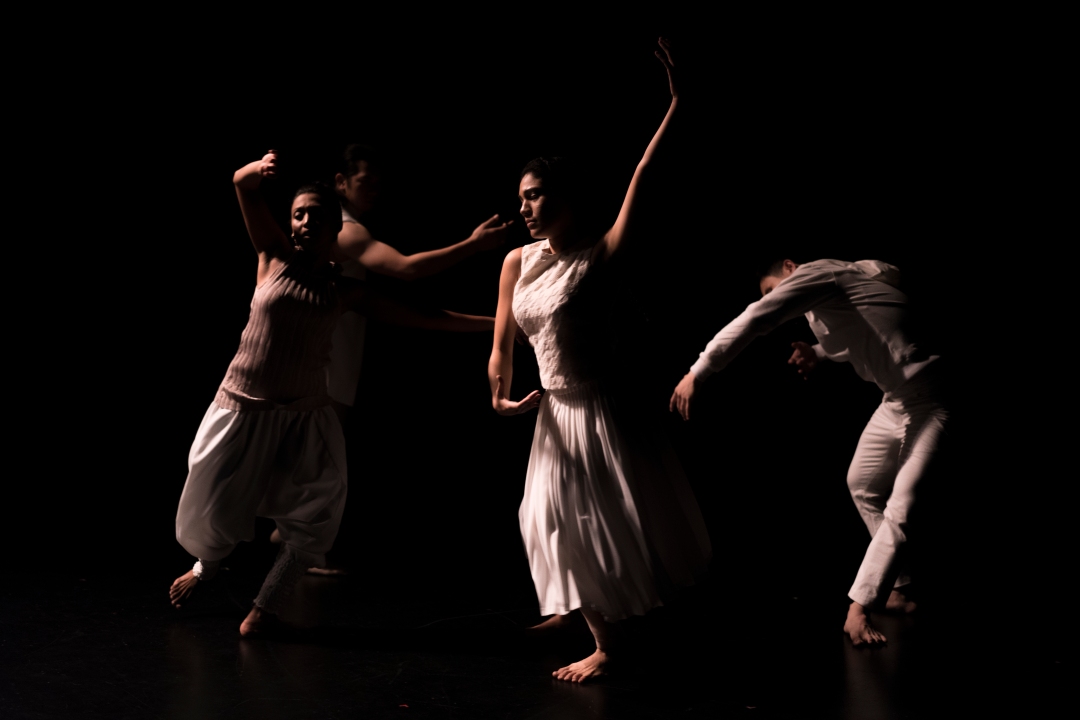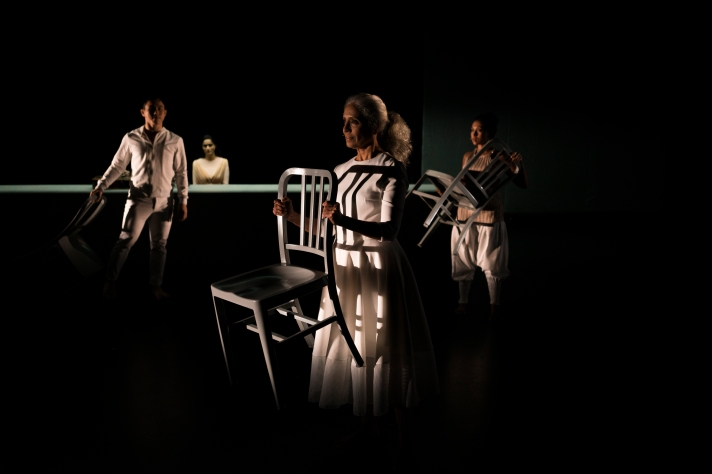
Following the success of Manifesto, the Necessary Stage returns to present Ghost Writer, a multimedia performance that seamlessly combines dance, theatre, music and videography to create a rich visual and sensual experience.
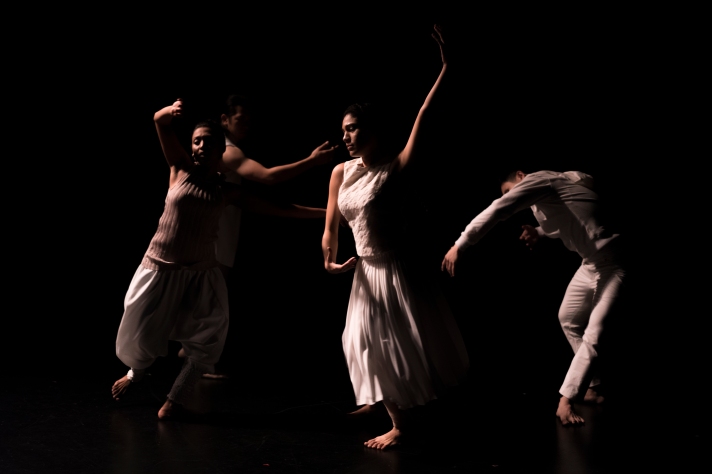
Ghost Writer takes inspiration from Indian poet Rabindranath Tagore, drawing on both his work and life. It’s difficult to sum up what exactly Ghost Writer is about, considering its nature as a piece of almost abstract physical theatre. Ghost Writer is mostly a series of dances framed by the story of an Indian family from Chennai. The ineffable Sukania Venugopal plays an ageing director of a renowned Indian dance school. Her best student, played by Ruby Jayaseelan, leaves to start a life in Canada, establishing her own dance school and coming into her own, combining classical and contemporary styles to great acclaim.
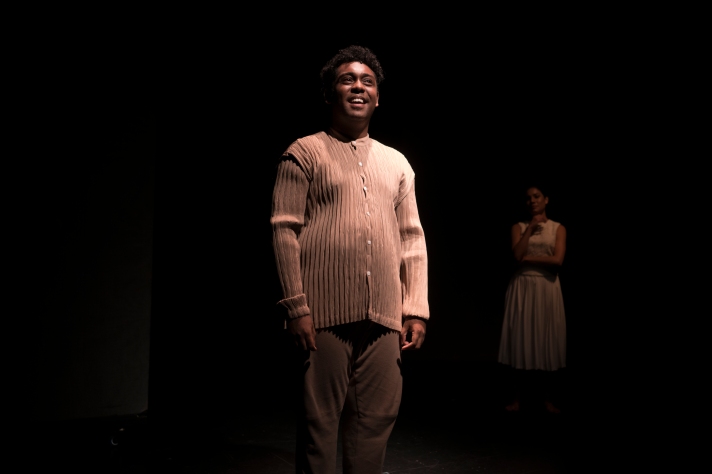
Meanwhile her son, played by Vasantham’s Ebi Shankara, is a Tagore scholar and helms the creative writing sector of his mother’s school, who is betrothed to Sharda Harrison’s character, who is in emotional turmoil from the death of her sister.
The one word I’d use to describe the performance is this: haunting. Bani Haykal’s live music is the heart and soul of the play, lending a mix of traditional sounds and otherworldly noises to form a transcendent soundscape that acts as the backing track for the dances. Namita Mehtal, who holds a PhD in Classical Hindustani Vocals, provides the live vocals that add an extra layer of depth to Haykal’s tunes.
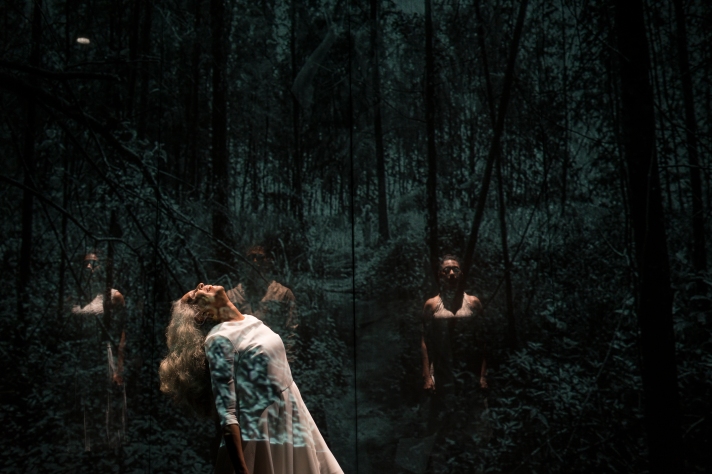
Visually, Ghost Writer is one of the most stunning pieces I’ve seen recently as well. Wong Chee Wai, probably Singapore’s best and prolific set designer, has crafted a minimalist, changeable set consisting of chairs and rectangular frames on wheels that double as projection screens.
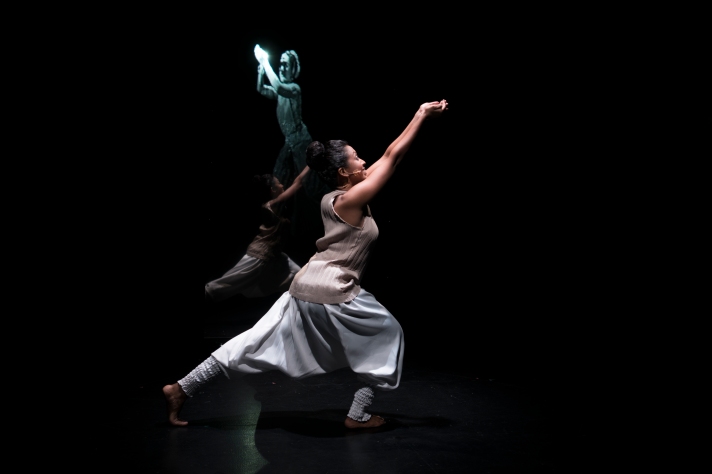
Ghost Writer raises questions about migration, family, identity and loss. Although it never really seeks to answer them, what it does succeed at is providing an innovative platform and style of presenting these age old issues. Ghost Writer is quite a far cry from TNS’ usual plays, and is an intense watch, requiring an audience’s utmost concentration to focus on the many visual elements onstage at the same time. At one point, the characters recite an English translation of Tagore’s The First Sorrow as those same words are projected across the stage, overshadowing the actors while they dance. Over the course of Ghost Writer, characters leave their home of Chennai to countries like Canada and Singapore, and are both alienated and venerated in various ways. The sheer weight of the emotions brought about by these separations seem incommunicable in words alone, and are expressed in dance, supported by Brian Gothong Tan’s surreal video projections. Certainly, one of the most interesting dances involved Ruby Jayaseelan dancing in front of a mirror, while flanked by a video projection of her in costume, and a video feed of her live dance.
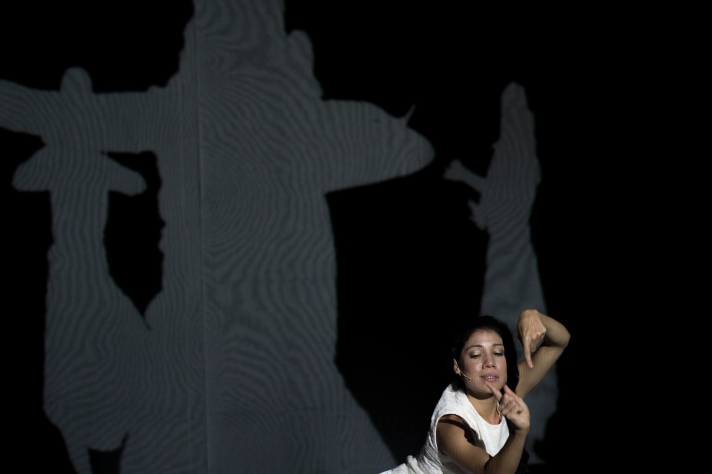
For myself as a viewer, Sharda Harrison’s character Nandini resonated a lot emotionally. Nandini’s arc parallels that of Tagore’s, whose sister in law committed suicide. Much as she acts as Tagore’s muse, Nandini’s late sister becomes the catalyst for which she ends up shutting herself away from society and writing spoken word poetry where the only audience is herself. As Nandini quips at the beginning and end of the play: “Bloody Tagore, good for something after all.” Harrison performs the spoken word poems with aplomb, later on reciting a piece she writes on the plane following her sister’s death, delivering a heart wrenching performance where she suffers a break down, repeating her meaningless words to a fever pitch. Meanwhile, Sukania Venugopal is always a joy to see onstage, and straddles the line between seasoned veteran artist and naggy mother perfectly. The chemistry between the performers is perfectly evident in the final chapter of Ghost Writer, as they dance in sync to a modern beat with echoes of the past, with a voiceover from Shankara, and makes for a feast of a final scene.
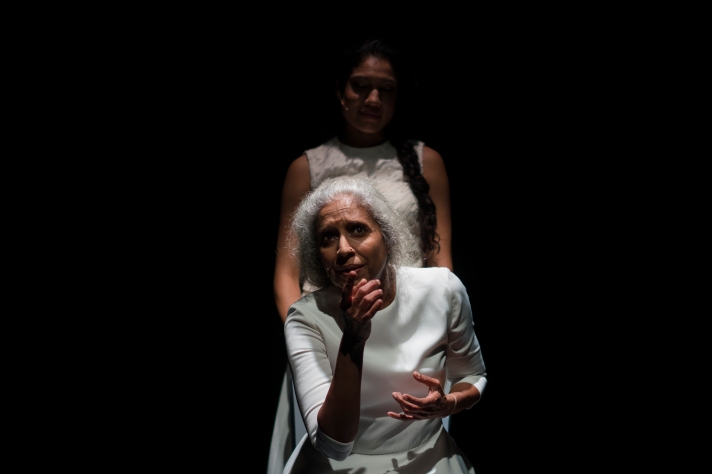
As a whole, Ghost Writer is one of the most visually fascinating and engaging pieces of theatre onstage this year, and challenges audiences used to the standard family drama to tap into their imagination and have a change of perspective to see that drama play out in dance. Ghost Writer’s scenes don’t always gel, but when they do, they result in memorable spectacles that will remain in my head long after I step out of the theatre. I’m not a fan of dance myself, and often find it hard to understand, but TNS has possibly helped me come that much closer to appreciating it as an art form, and that it truly is one of the most universal languages.
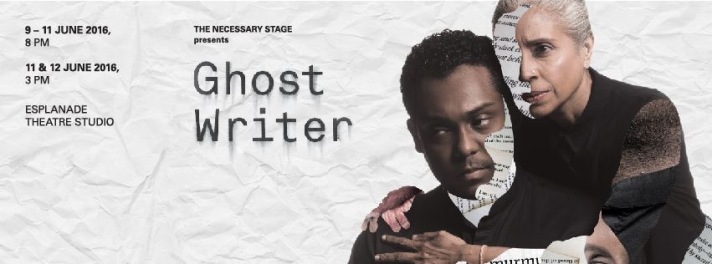
All photo credit goes to Caleb Ming / SURROUND

